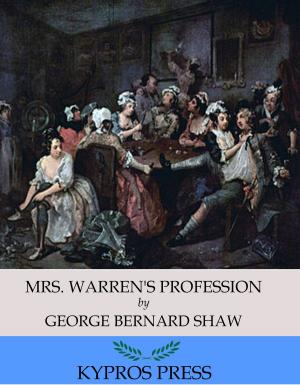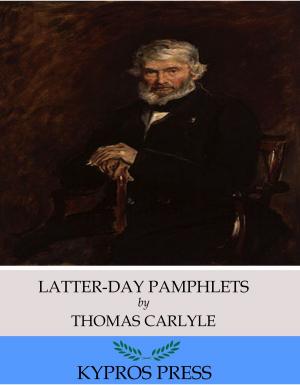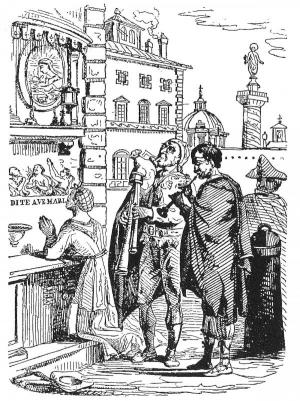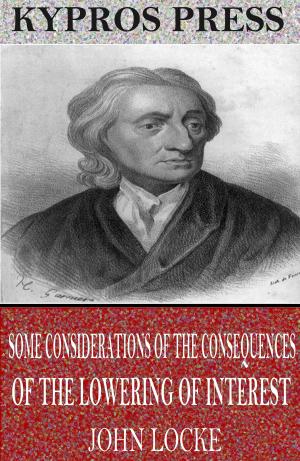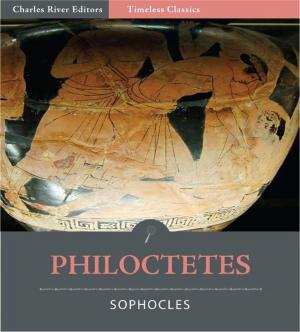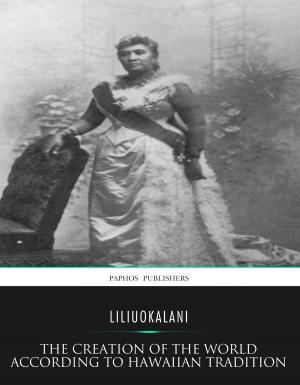The Townshend Act of 1767 (Illustrated)
Nonfiction, History, Americas, United States, Colonial Period (1600-1775), Reference & Language, Law| Author: | British Parliament | ISBN: | 9781475312447 |
| Publisher: | Charles River Editors | Publication: | February 22, 2012 |
| Imprint: | Language: | English |
| Author: | British Parliament |
| ISBN: | 9781475312447 |
| Publisher: | Charles River Editors |
| Publication: | February 22, 2012 |
| Imprint: | |
| Language: | English |
One of the most famous revolutions in history, the American Revolution (1775-1783) was the political upheaval in which 13 distinct colonies in North America banded together to cast off British rule, forming the United States of America. But what brought about the Revolution? The trouble began after the Seven Years War between France and Great Britain. The Townshend Acts were a series of laws passed beginning in 1767 by the Parliament of Great Britain relating to the British colonies in North America. The acts are named for Charles Townshend, the Chancellor of the Exchequer, who proposed the program. Historians vary slightly in which acts they include under the heading "Townshend Acts", but five laws are frequently mentioned: the Revenue Act of 1767, the Indemnity Act, the Commissioners of Customs Act, the Vice Admiralty Court Act, and the New York Restraining Act.The purpose of the Townshend Acts was to raise revenue in the colonies to pay the salaries of governors and judges so that they would be independent of colonial rule, to create a more effective means of enforcing compliance with trade regulations, to punish the province of New York for failing to comply with the 1765 Quartering Act, and to establish the precedent that the British Parliament had the right to tax the colonies. The Townshend Acts were met with resistance in the colonies, prompting the occupation of Boston by British troops in 1768, which eventually resulted in the Boston Massacre of 1770.As a result of the massacre in Boston, Parliament began to consider a motion to partially repeal the Townshend duties. Most of the new taxes were repealed, but the tax on tea was retained. The British government continued in its attempt to tax the colonists without their consent, however, and the Boston Tea Party and the American Revolution followed. This edition of the Townshend Acts is specially formatted with illustrations of King George III, Parliament, and more.
One of the most famous revolutions in history, the American Revolution (1775-1783) was the political upheaval in which 13 distinct colonies in North America banded together to cast off British rule, forming the United States of America. But what brought about the Revolution? The trouble began after the Seven Years War between France and Great Britain. The Townshend Acts were a series of laws passed beginning in 1767 by the Parliament of Great Britain relating to the British colonies in North America. The acts are named for Charles Townshend, the Chancellor of the Exchequer, who proposed the program. Historians vary slightly in which acts they include under the heading "Townshend Acts", but five laws are frequently mentioned: the Revenue Act of 1767, the Indemnity Act, the Commissioners of Customs Act, the Vice Admiralty Court Act, and the New York Restraining Act.The purpose of the Townshend Acts was to raise revenue in the colonies to pay the salaries of governors and judges so that they would be independent of colonial rule, to create a more effective means of enforcing compliance with trade regulations, to punish the province of New York for failing to comply with the 1765 Quartering Act, and to establish the precedent that the British Parliament had the right to tax the colonies. The Townshend Acts were met with resistance in the colonies, prompting the occupation of Boston by British troops in 1768, which eventually resulted in the Boston Massacre of 1770.As a result of the massacre in Boston, Parliament began to consider a motion to partially repeal the Townshend duties. Most of the new taxes were repealed, but the tax on tea was retained. The British government continued in its attempt to tax the colonists without their consent, however, and the Boston Tea Party and the American Revolution followed. This edition of the Townshend Acts is specially formatted with illustrations of King George III, Parliament, and more.






